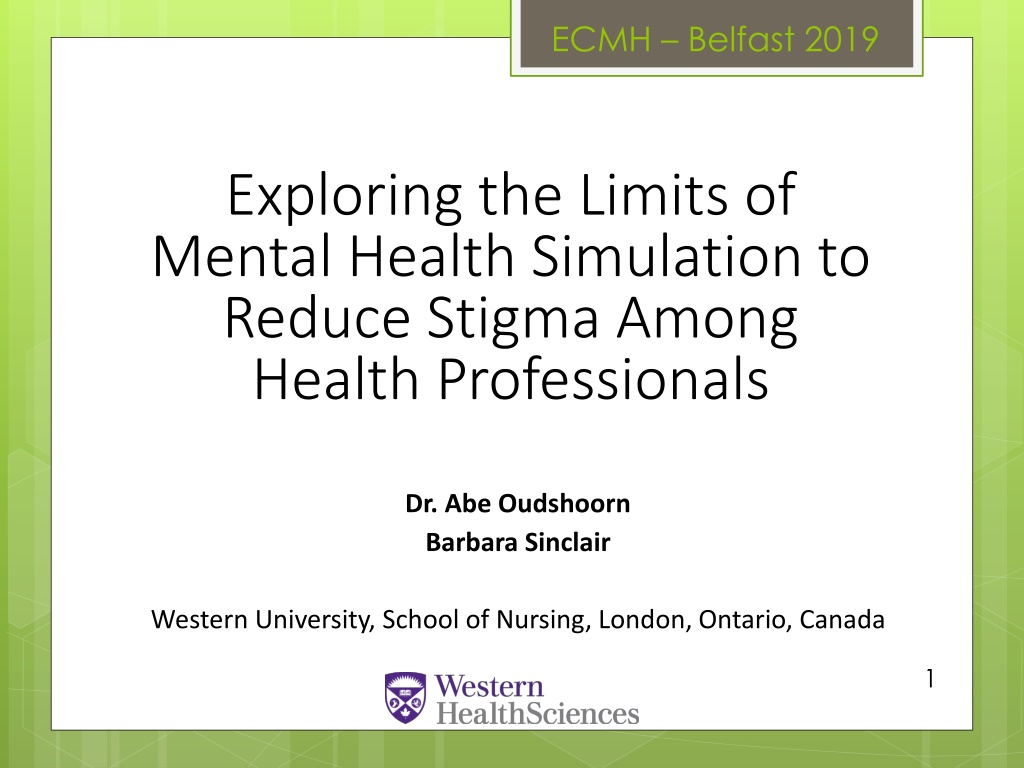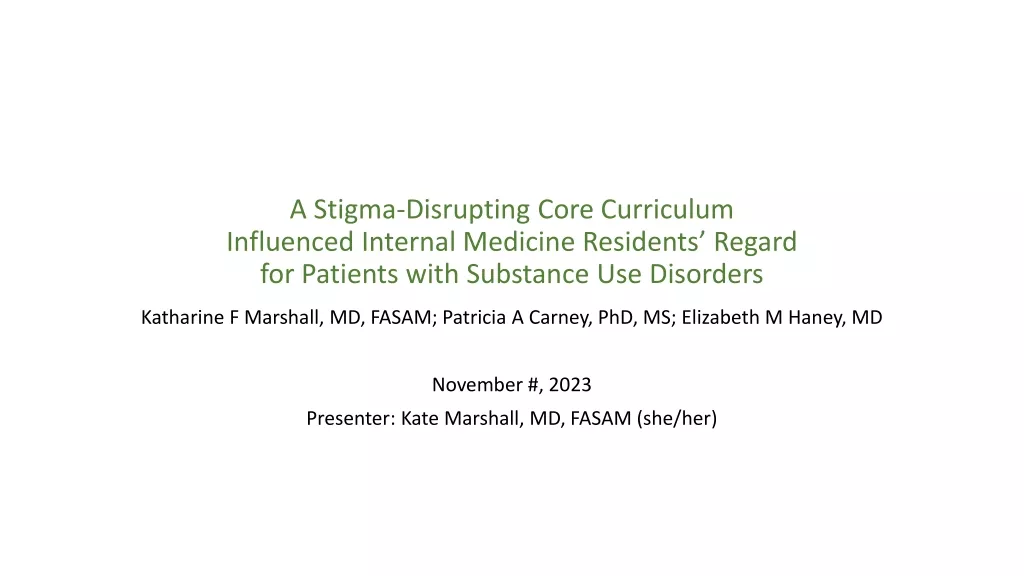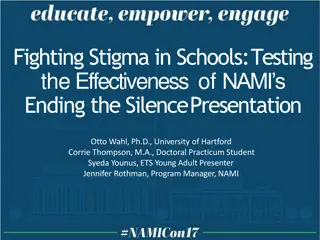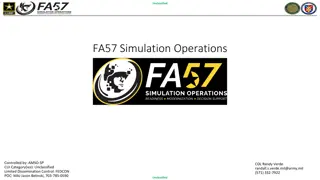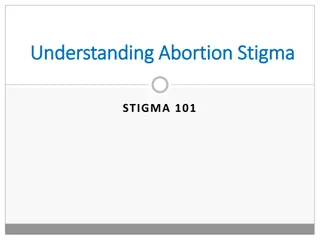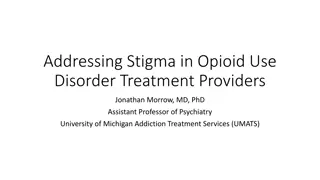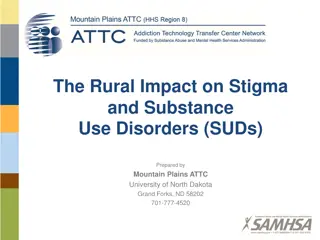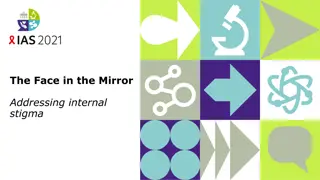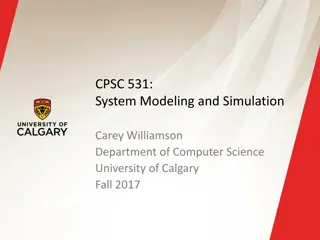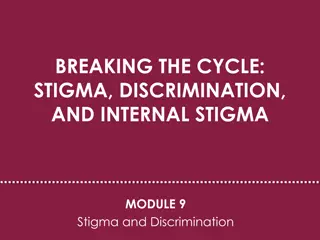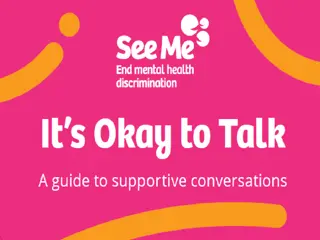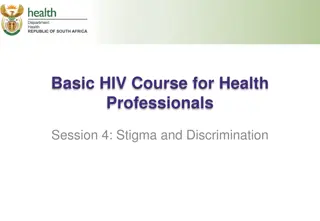Examining Mental Health Simulation's Impact on Reducing Stigma Among Health Professionals
Mental health care perception among nursing students is often negative, with simulation proving beneficial in teaching task-based aspects. Real-world practice also helps reduce stigma. The study explores if exposure to standardized patients acting out mental health challenges can decrease stigma levels. Methodology involves a mixed-methods approach with a focus on nursing students' attitudes towards mental illness and perceived stigma.
Download Presentation

Please find below an Image/Link to download the presentation.
The content on the website is provided AS IS for your information and personal use only. It may not be sold, licensed, or shared on other websites without obtaining consent from the author. Download presentation by click this link. If you encounter any issues during the download, it is possible that the publisher has removed the file from their server.
E N D
Presentation Transcript
ECMH Belfast 2019 Exploring the Limits of Mental Health Simulation to Reduce Stigma Among Health Professionals Dr. Abe Oudshoorn Barbara Sinclair Western University, School of Nursing, London, Ontario, Canada 1
ECMH Belfast 2019 What We Know Mental health care is one of the most negatively perceived domains of practice by nursing students (Happell & Gaskin, 2013) Simulation can assist students in learning the task-based components of mental health care (Bartlett & Butson, 2015; Doolen, et al., 2014) Mental health professional practice in real world environments reduces stigma of students towards people experiencing mental health challenges (Galletly & Burton, 2011) 2
ECMH Belfast 2019 Context Increasing demand for simulated professional practice experiences in health care curricula Class sizes; Pressures on hospital environments In defense of simulation: High quality, professional simulation 3
ECMH Belfast 2019 What We Don t Know Does exposure to standardized patients acting out mental health challenges lead to stigma reduction? 4
ECMH Belfast 2019 Methodology Quasi-experimental, mixed methods Case: Compressed program nursing students Control: 4-year program nursing students Pre- and post-test 5 Qualitative interviews
ECMH Belfast 2019 Tools Attitudes towards Mental Illness Questionnaire (AMIQ) & 15-item modified version of the Perceived Stigma Questionnaire (PSQ) Qualitative interview guide 6
ECMH Belfast 2019 Sample Quan Pre: 44 case Quan Pre: 79 control Quan Post: 43 case Quan Post: 49 control Qual: 8 mixed 7
ECMH Belfast 2019 Results Case Control Range 5-25 15-75 20-100 5-25 15-75 20-100 Pre Ad Pre MH Pre Comb Post Ad Post MH Post Comb 18.4 32.1 50.5 16.6 28.6 45.2 18.9 30.8 49.7 18.4 30.3 48.7 8
ECMH Belfast 2019 Results - Themes Positive: Safety in Simulation Nursing Students are Open-Minded Negative: Societal Boundaries Universality of Mental Health Challenges 9
ECMH Belfast 2019 Discussion Simulation creates a statistically significant reduction in measured mental health stigma among nursing students Students perceptions on the value of mental health simulations are mixed 10
ECMH Belfast 2019 Questions 11
